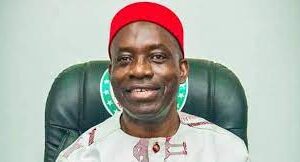The Deputy Vice Chancellor (Admin) Ahmadu Bello University (ABU) Zaria, Professor Ahmed Doko Ibrahim has said Nigeria alone produces around 180kg agric and food wastes on annual basis.
This, he said, is more than enough to provide electricity for basic needs in our various homes and usages,” and tasked federal government to key into waste-wealth area.
Professor Ibrahim stated this during a one day symposium on ‘Advanced Technological Synergy for Renewable Energy Production in sub-Saharan Africa using Agri-Food Waste (AFW) in collaboration with the Royal Academy of Engineering, Raw Materials Research and Development Council (RMRDC) and other African countries, Wednesday in Abuja.
According to him, “This has disassociated us from over reliance on the very epileptic public sector power solution which hasn’t been working and it is estimated that Nigeria has this new target of 30-30”, adding that “30% of the energy by the year 2030 should come from renewable energy.
“Renewable energy alone can provide solution to that 30% and so the other aspect of wind, solar and all those other aspect can actually mean we can get more from the renewable energy beyond the 30% mark Nigeria is targeting.”
He further said the onus lies on all Nigerians to provide a solution, technology for converting these wastes back to energy in variety of forms like electricity, biogas and the likes and not just for the government only.
Continuing, he said: “These wastes are provided both in the cities and rural areas to ensure that the technology are affordable because people will be aware that what they use money to acquire, is a source of wealth creation, which people will easily key into.”
Speaking, the Principal Investigator Loughborough University United Kingdom, Dr. Oluwasola Afolabi, said the symposium was targeted at moving away from burning wastes into a recovery value in the sense that, recovering value in waste is talking about energy and “this is what a lot of countries are doing and research shows that we have enormous amount of wastes.
“I’m of the point of view that, if you don’t manage wastes, it won’t be kind to you and if you manage it, you recover energy and addressing a lot of the public health risk that is associated with poor waste management,” he said.
Earlier, the Director General RMRDC Professor Hussain Doko Ibrahim had lauded the initiative, stating that the Council is open for more partnership in realising Nigeria’s vision in energy fix.




